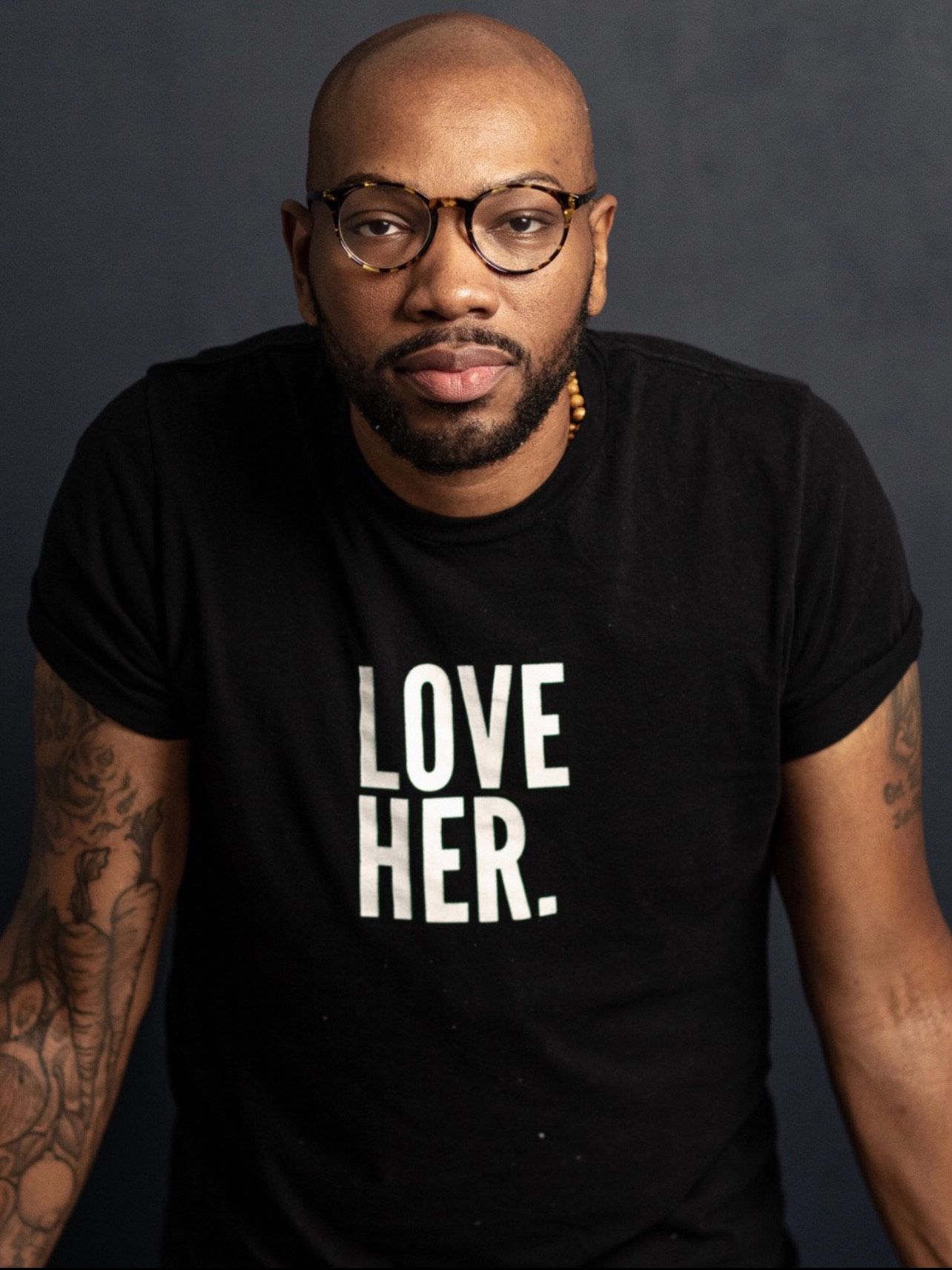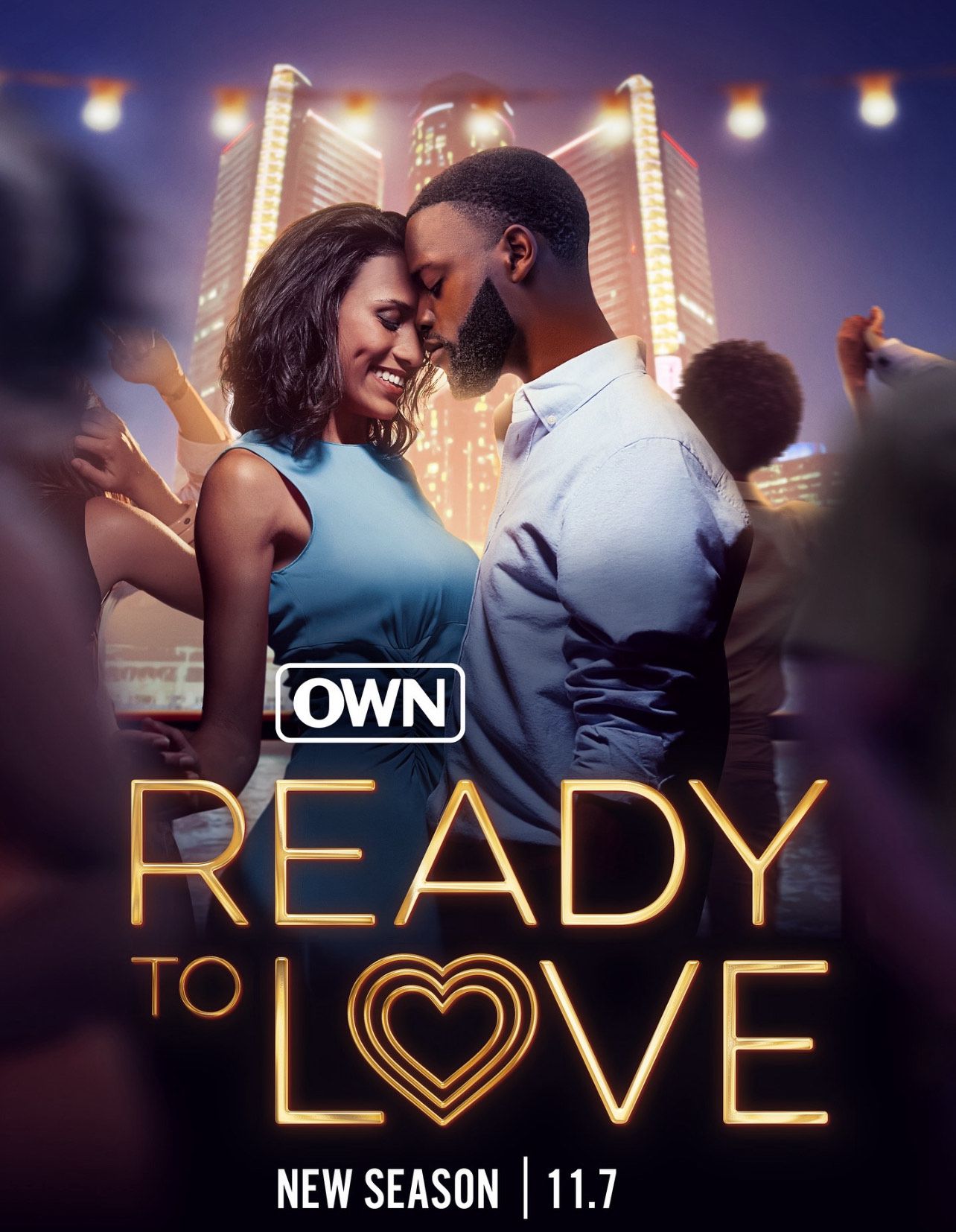By Carita Miller

By any measure, Chef Chris McClendon has mastered the art of transformation. Over two decades in the culinary industry have shaped him into more than a chef — he’s a storyteller, cultural archivist, and visionary whose dishes serve as both flavor and philosophy.
From curating the soulful fine dining experience at the James Beard–nominated Savannah Blue to teaching healthy cooking through community partnerships with The McKinney Foundation and Michigan State University, Chef McClendon’s food always carries a message. His approach blends oral history, traditional ingredients, and modern technique to create what he calls “edible art.” But for McClendon, the artistry extends far beyond the kitchen.
As a native Detroiter, his creativity pulses with purpose — connecting people, culture, and community through every meal. Now, he’s expanding that vision to the screen with two major new ventures: Detroit Love, his upcoming podcast-meets-dinner series where comedians and artists gather in his home for intimate, laughter-filled conversations; and his appearance on OWN’s Ready to Love: Detroit, premiering November 7, 2025, hosted by Nephew Tommy.
For McClendon, the timing feels divine. “Food is connection,” he says. “It brings people to the table — whether it’s through love, laughter, or legacy.”
We sat down with Chef Chris to talk about heritage, healing, and how Detroit continues to shape his flavor and his philosophy.
1. Your work goes beyond food—it’s storytelling on a plate. When you draw from oral histories and traditional African or ethnic cooking techniques, what’s the emotional or cultural responsibility you feel when transforming those stories into modern dishes?
The cultural or emotional responsibility that I have to the dishes that I create — I really just see it as the way that I like to draw inspiration. So as much as it is a responsibility, I don't really look at it from that perspective. I look at it from the perspective of, “As an artist, it is my responsibility to translate my experience into art.”
I feel like that is the purpose of art. Every artist has a responsibility to experience life, filter it through their perspective, and then repurpose it into the world to make the world a better place. So, for me, whenever I've eaten something or had a cultural experience, it's my job to consume it, interpret it in my own way — how it affected me, how it made me feel, how it inspired me, how it motivated me — and then take that and repurpose it to make someone else feel that same entire experience.
2. You’ve built your brand on the idea that food can shape communities—from teaching healthy cooking in Detroit to championing local sourcing. In an industry driven by fame and profit, how do you balance artistry with activism?
So, the way I've been able to balance artistry and activism is by utilizing my art to tell a story to affect change. And I feel like that's why when I look at certain indigenous ingredients to Michigan, and I also look at the Black experience and the way we like to eat, the things that we like to consume, I love to marry the two. And that's where the artistic part comes in — because the art is being able to be creative with how you purpose it, and the activism is the effect that you're going for, or the change that you're trying to invoke through the art.
So, I feel like, for me, they're hand in hand. I don't see them working against each other. Fortunately, I figured out a way to utilize my artistry to be more active from the activism perspective.
3. You’re stepping in front of the camera with your new podcast-show Detroit Love—inviting comedians and artists into your home for food and conversation. What made you want to merge comedy, cuisine, and culture—and what truths about Detroit or artistry are you hoping to uncover around that dinner table?
Shout out to the comedian Gene for this idea. The most difficult thing for a chef like myself, who isn’t coming from California or Chicago, is that it’s very difficult to break into the food scene — particularly on social media. And comedy is one of those things that’s a new arena for me as well, so I wanted to try to merge all of the things that I’m trying to elevate together: one, my social media presence; two, this new endeavor in regards to my comedic evolution. And Jiao Ying, who is a comedian that I happened to have the pleasure of meeting a few months back, was like, “Hey, you need to do your own podcast — invite comedians over. I’ll do your episode.” And yeah, it kind of grew from there. It was definitely something that I was already tinkering with — the podcast thing — and I had a few other ideas that I was developing, but this one really stuck because it just aligned perfectly with where I’m at in my life and the things that I’m doing right now.

4. You’re also appearing on OWN’s Ready to Love: Detroit this November, a totally different kind of stage. How does a chef known for curating experiences approach vulnerability and romance when he becomes the story?
Wow, that’s a great question. Honestly, the only way I can answer that is transparency. As much as I love to create, as much as I love to affect change, I’m definitely a lover boy. I believe in love, I believe in romance, I believe in building. And I think because of my profession, I’ve had the fortunate and unfortunate opportunity to have a lot of interactions with a lot of different women.
I’m just a person that has been in an aggressive search for the person that is the one for me, and finding that one I can give all of this love to has been a journey, to say the least. I’m currently in a relationship that I feel very happy in, but it did not come from my experience on the show. However, it was very important for me to merge my love for comedy, my love for food, and my love to educate and inspire — because as you hear these comedians, entertainers, and athletes talk about their journey and their story, I think it’s so important to give individuals hope.
We’re all trying to figure it out. We’re all trying to get to the next level. We’re all trying to figure out how to turn these passions into profit. And I think that when you’re able to hear people’s journeys — to hear some of their pitfalls, to hear some of their triumphs — and when you hear that “oh, it didn’t feel like a triumph at the time,” it resonates with people.
So, I think that just allowing people to hear the story in totality — not just the fluffy stuff, not just the funny stuff, but the full, real story — is powerful. I don’t want it to turn into a drama talk show, but at the same time, I definitely want to have real conversations that leave people walking away feeling inspired, in a very comical way.
Stepping into a situation where it was first about the food and the history, and now it’s also about me and my process, has been interesting — because at my core, I’m a lover boy. I’ve always felt like being a good husband is what I was called to be. And to be able to go through this process on a nationally syndicated show is interesting. I never would’ve thought that my journey would be displayed on such a large scale, but it’s definitely been a unique experience.
Even though I didn’t find love on the show, it definitely led me to the partner that I’m currently with now. And, you know, who knows if it’s going to last forever — I just know that right now, I’m happy, and things are well. So, I feel inspired to keep moving forward.
5. From Michelin-level technique to film, music, and concierge dining experiences, you’re redefining what it means to be a chef. When people look back on your journey twenty years from now, what do you hope they say you changed about the culture of food and creativity in Detroit?
Yeah, I certainly don’t consider my food to be Michelin-level — so let’s start there. But if Michelin wanted to award me that accreditation, then amazing. But yeah, I don’t necessarily look at my food through any kind of pretentious lens. I just like to, you know, really cook from the heart and cook with all of the emotion and experience that I can.
And I think that in doing so, I want my career to be that of an individual who inspired others to be great. I want people to walk away from it feeling like, “You know what? This was a beautiful journey.” Was it always easy? Absolutely not. But for those individuals looking to get into the culinary industry who think that it’s all glitz and glamour — I want them to see that, sure, there’s some glamour, but there’s also a lot of grind. Sometimes there’s upstairs, downstairs. There’s development in your leadership, development in your skill set, development in your understanding — and I think that, ultimately, those are things you never stop growing into.
So even 20 years from now, I’ll be more intelligent, I’ll be more inspired, I’ll be cooking better food. And it’s my prayer that my journey helps somebody — whether it’s to fall in love, to find their passion, to just be motivated to cook another day, or to sign up for culinary school, or take that acting class, or start that podcast, or do that first open mic as a stand-up, or write that first script as a screenwriter.
Because I’ve done all those things, and I feel very fortunate that God has given me the opportunity to experience them all. Even though I’m not exactly where I would love to be, I’m really happy where I am — and I thank God for every experience.
Chef Chris McClendon isn’t just feeding people — he’s feeding ideas, communities, and hearts. His work moves between worlds: fine dining and philanthropy, local kitchens and global stages, culinary tradition and cultural innovation. Whether he’s teaching healthy recipes, plating an avant-garde meal, or sharing laughs on Detroit Love, McClendon continues to prove that his legacy will be measured not just in dishes served, but in lives touched.
Because for Chef Chris, love — like food — is best when it’s shared.
